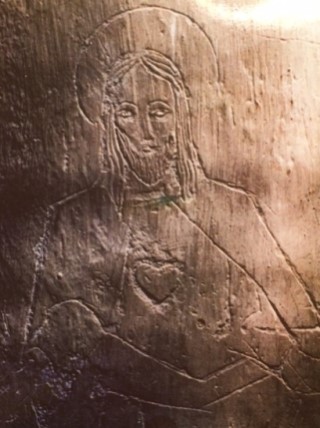www.frtommylane.com
Bible Study, Prayer, and Homily Resources
by Fr. Tommy Lane
The Greek verb agapaō, to love, occurs 143 times in the New Testament. It refers to loving God, loving Jesus, loving a person or people. In just a handful of exceptions, it does not refer to loving God or people. The first of those exceptions occurs in today’s Gospel (Luke 11:42-46). The Pharisees loved the seat of honor in synagogues and greetings in marketplaces (Luke 11:43). I think we can simply say that instead of loving God and others as they ought, they loved themselves more. That seems to be the root of their problem and why they earned the rebuke of Jesus in today’s Gospel. Instead of giving of themselves and loving as they ought, they wanted to be loved more. By contrast, in John’s Gospel, Jesus said, “love one another as I have loved you” (John 15:12) and John tells us Jesus loved his own to the end (John 13:1), in other words, all the way to the cross. What a contrast between the Pharisees and Jesus. It is the contrast between loving oneself and loving others to the end.
The scholars of the Law, the scripture
scholars, also earned a rebuke from Jesus because they imposed
burdens on people that were difficult to carry (Luke 11:46). They
added many obligations that were not in the Torah, for example, the
thirty-nine things that could not be done on the Sabbath (m. Sabb.
7:2 A). To comply
with God’s will, people had to obey the 613 injunctions into which
they had organized the Law (TDNT IV 535). By contrast in Matt 11:30,
Jesus invites
us to take his yoke upon us because his yoke is easy and
his burden light. The
scribes imposed burdens on people but Jesus’ yoke and burden are
easy and light because Jesus’ yoke and burden are friendship with
Jesus, spending time with Jesus, meditating on his word. The yoke
and burden of Jesus are friendship with Jesus.
In one of the cells
in Auschwitz, a Polish prisoner, Stefan Jasieński, scratched a
drawing of the Sacred Heart of Jesus on the wall (cell 21 in the
Block of Death. You can see Wieslav Zielinski's photograph of the
etching on the
cover of Love Alone is Credible by Hans Urs von Balthasar.
Here is part of it on an Ordination Card.)
 In that place which, I imagine, was one of the
closest places to hell on earth, Jesus was lifting burdens. The
burden of Jesus, friendship with Jesus, impels us who are priests
and you who are preparing for priesthood to share that love of Jesus
with others. The desire to share that burden, love, and friendship of
Jesus with others is seen in a symbolic way in the chasuble. The
prayer in the past when priests put on the chasuble linked the
chasuble with the yoke and burden of Jesus. Wearing the chasuble
symbolizes carrying the burden of Jesus, and desiring to invite
others to also carry the burden of Jesus, his friendship, so that
they can make their own the words of the Psalm this morning,
In that place which, I imagine, was one of the
closest places to hell on earth, Jesus was lifting burdens. The
burden of Jesus, friendship with Jesus, impels us who are priests
and you who are preparing for priesthood to share that love of Jesus
with others. The desire to share that burden, love, and friendship of
Jesus with others is seen in a symbolic way in the chasuble. The
prayer in the past when priests put on the chasuble linked the
chasuble with the yoke and burden of Jesus. Wearing the chasuble
symbolizes carrying the burden of Jesus, and desiring to invite
others to also carry the burden of Jesus, his friendship, so that
they can make their own the words of the Psalm this morning,
Only in God is my soul at rest;
from
him comes my salvation.
He only is my rock and my salvation. (Ps
62:2-3)
The Pharisees loved the seat of honor and greetings, but Jesus loved others to the end. The scribes imposed burdens on people but Jesus’ burden is friendship with him which even in the Block of Death in Auschwitz lightened burdens.
© Fr. Tommy Lane 2019
This homily was delivered in Mount St. Mary’s Seminary, Emmitsburg, Maryland.